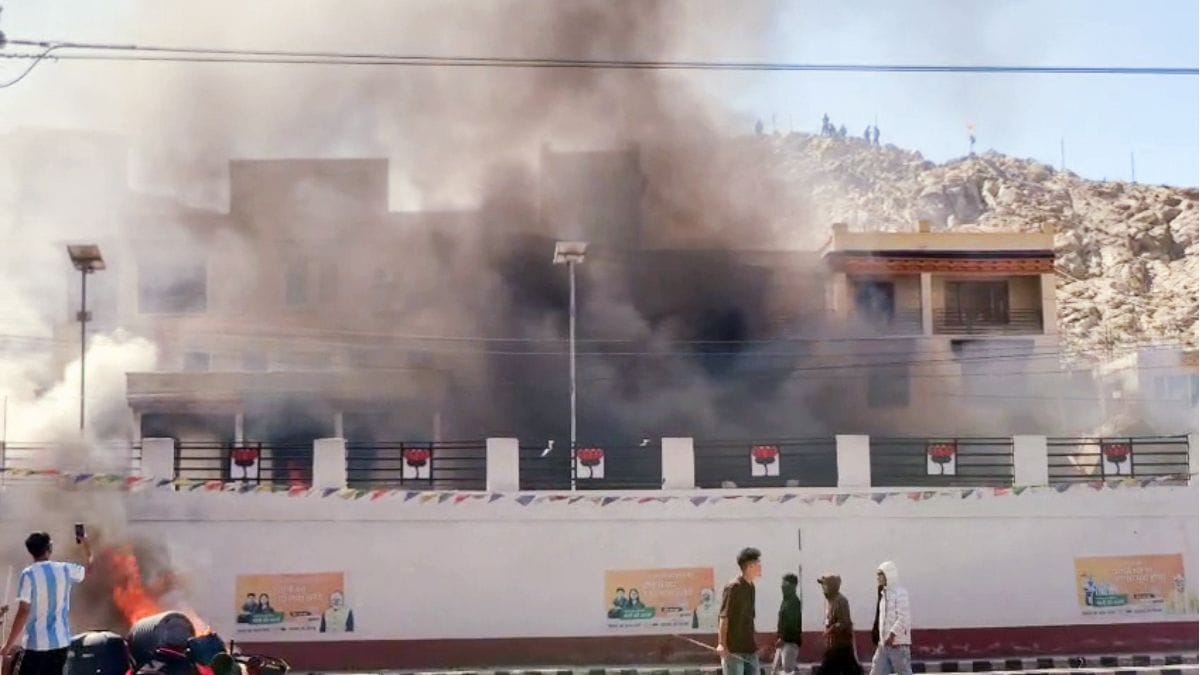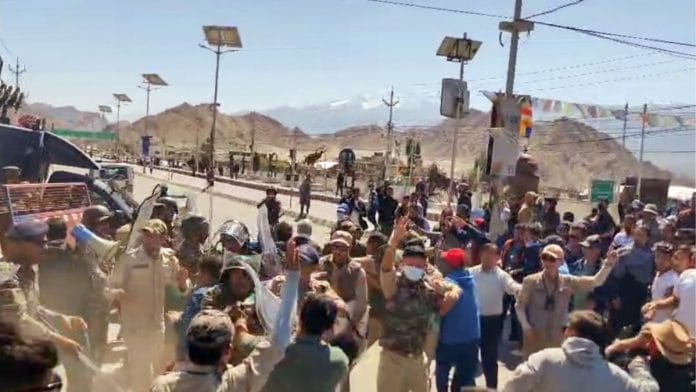New Delhi: The streets of Leh witnessed violent protests on Wednesday morning, with people attacking policemen with stones and even setting fire to a police vehicle. The police fired tear gas and lathi-charged the crowd. The protesters were demanding statehood and constitutional safeguards for Ladakh—currently a union territory.
Protesters have been on hunger strike and called a complete shutdown on Wednesday. They attacked the BJP office in Leh, ahead of talks with the Centre, scheduled for 6 October.
For the last two weeks, climate activist Sonam Wangchuk has been on a hunger strike, demanding statehood and inclusion of Ladakh in the Sixth Schedule of the Constitution.
Though this is the first time such violent protests have been seen in Leh, discontent has been simmering for the past three years.
Ladakh became a Union Territory in August 2019, following the abrogation of Article 370 and the bifurcation of the former state of Jammu and Kashmir. Though many, including Wangchuk, had welcomed the decision at the time, soon there were concerns over a leadership vaccum, with religious groups from Buddhist-majority Leh and Muslim-majority Kargil joining hands.
In March, Ladakh representatives met Union Home Minister Amit Shah in Delhi, but the talks collapsed, with the representatives claiming Shah rejected their core demands.

Omar Abdullah attacks BJP on J&K statehood
Meanwhile, Jammu and Kashmir Chief Minister Omar Abdullah on Wednesday launched a scathing attack on the BJP over the delay in restoration of J&K statehood.
Speaking to reporters, he said, “People participated in the election process. It is the BJP’s bad luck that they couldn’t win. However, people here can’t be punished for that. It seems like statehood is not being provided to the people since the BJP didn’t form the government. It is unfair to people. It was not stated that statehood will be restored only when the results favour the BJP. The opposition to statehood is coming from the BJP.”
“The biggest challenge is that we are not a state anymore. We were hoping for the promises made to the people of Jammu and Kashmir. The Supreme Court was informed that a three-step process would be implemented: Delimitation, followed by elections and statehood. Delimitation and elections have happened,” Abdullah added.
The Supreme Court of India, on 14 August, had heard a plea seeking directions to the Centre for the restoration of statehood to the Union Territory of Jammu and Kashmir.
The apex court noted that the ground situation in Jammu and Kashmir cannot be ignored while granting statehood and said that the events in Pahalgam cannot be overlooked.
(Edited by Viny Mishra)







Unemployment can be fixed through investments. But statehood is risky, in the aftermath of Pahalgam attacks.
It’s not because BJP lost. It’s just that, we are in a tricky situation.